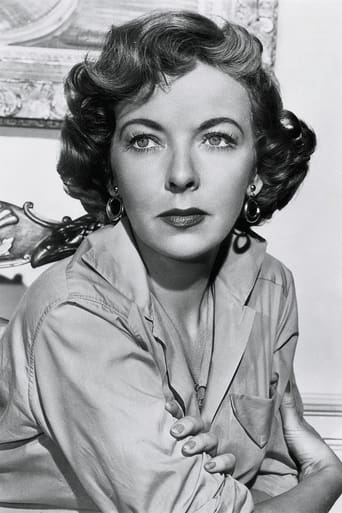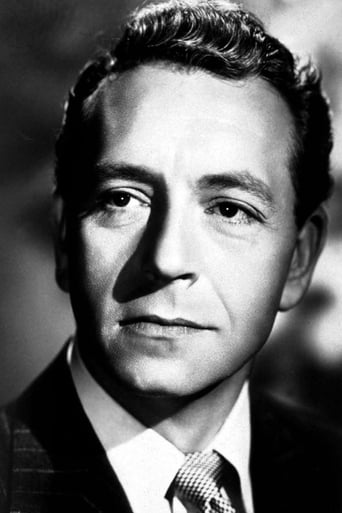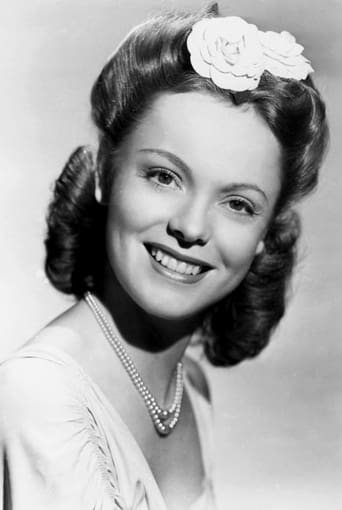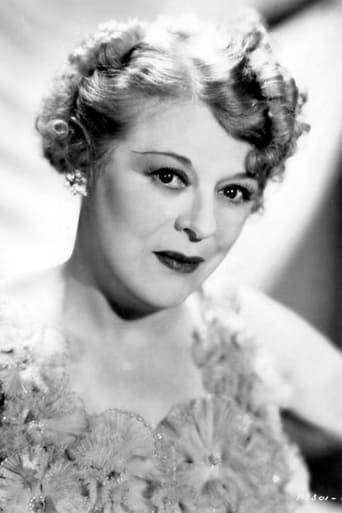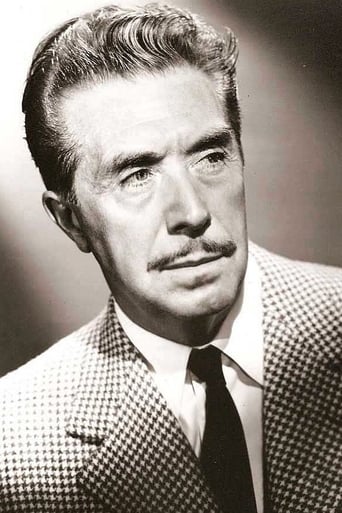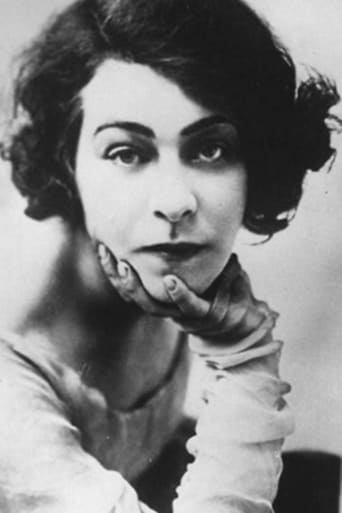Livestonth
I am only giving this movie a 1 for the great cast, though I can't imagine what any of them were thinking. This movie was horrible
KnotStronger
This is a must-see and one of the best documentaries - and films - of this year.
Quiet Muffin
This movie tries so hard to be funny, yet it falls flat every time. Just another example of recycled ideas repackaged with women in an attempt to appeal to a certain audience.
Jerrie
It's a good bad... and worth a popcorn matinée. While it's easy to lament what could have been...
edwagreen
Excellent 1944 film with a greatly subdued, but still superior Ida Lupino, finding love in Poland with a count-wonderfully played by Paul Henried.What makes this film so good is that it shows the class distinctions among the Polish-from peasants to aristocracy, the latter unwilling to give up their status even as war beckons.Had this been a comedy, Mary Boland would have stolen the show. The gifted actress, with her high-pitched voice, was wonderful as the woman who takes Lupino to Poland in the former's search to buy antiques.Victor Francen is the embodiment of the aristocracy unwilling to change its ways. I thought by the end that he would have Nazi sympathies, given the type of person he generally played in films.A wonderful patriotic movie filled with commitment, duty and love.
blanche-2
"In Our Time" from 1944 is a propaganda movie set in Poland starring Paul Henried, Ida Lupino, Nazimova, Nancy Coleman, Victor Francen, and Michael Chekhov, and directed by Vincent Sherman.The script, by Ellis St. Joseph and Howard Koch, is reminiscent in some ways to Rebecca and to Gone with the Wind. Jennifer Whittridge (Lupino) is traveling as a secretary to an antique dealer (Mary Boland) in Poland in 1939 when she meets Count Stephen Orvid (Henried). Henried mistakenly believes Jennifer is good for a quick fling, but he realizes soon enough that's not the case. As Jennifer's trip draws to an end, he proposes, and she accepts though his aristocratic family objects. In order to live independently of his uncle (Victor Franzen), Stephen and Jenny employ modern techniques on the farm and incentivize the peasants by giving them a share of the harvest. Then the war comes to Poland.There are good performances by everyone involved. The film moves slowly but one feels the tension of the approaching war. Some of that tension may be due to the viewer knowing that Poland was in for one miserable time not only during the war, but after under Communism.Paul Henried had his real heyday during WWII since the usual leading men were off fighting the war; Ida Lupino, since she was at Warners, always wound up with Bette Davis' handoffs and later distinguished herself on television and as a director. She and Henried make you care about the characters.It's odd to have a film set in Poland, odder still that Poland's radio announcements were in English. Eastern Europe's WWII story is a tragic one, and it wasn't shown in film all that often.
WarnersBrother
Sadly wasted cast, all of whom are beaten by a script that doesn't know where it's going and leaves you wondering where you have been. Just when you get ready to hate a villain, they turn out to be a not-so-villain (Particularly the always excellent Victor Francen, who was used extensively by Warner's to represent the full spectrum of Europeans, both good and bad). We don't even get some real-life Nazi's to loath. The only real difference between this and GWTW is that GWTW is 3 hours long and this just seems like it. One of the odd results of this is that, if you pay close attention, you may agree that the great Ida Lupino may have been a good second choice for Scarlett O'Hara (though her performance here is much more restrained by the character.)
verbusen
The main reason why I was interested in watching this was how a Hollywood movie made in 1944 would handle the invasion of Poland. Afterall the Soviets were now our Allie. Well Hollywood took the easy way out and didn't mention the Nazi-Soviet non aggression pact and the co invasion of Poland by the USSR, it was all a Nazi show. I only watched the first few minutes and than woke up (it was showing at 3-4 am) right at the start of the invasion on what looked to be Ida's and Henried's wedding night. It's a good thing Henried's character didn't get captured by the Soviets as I don't think they took a kind view of aristocrat Polish officers judging by the mass graves that were discovered full of them. Real sappy war propaganda fluff.
